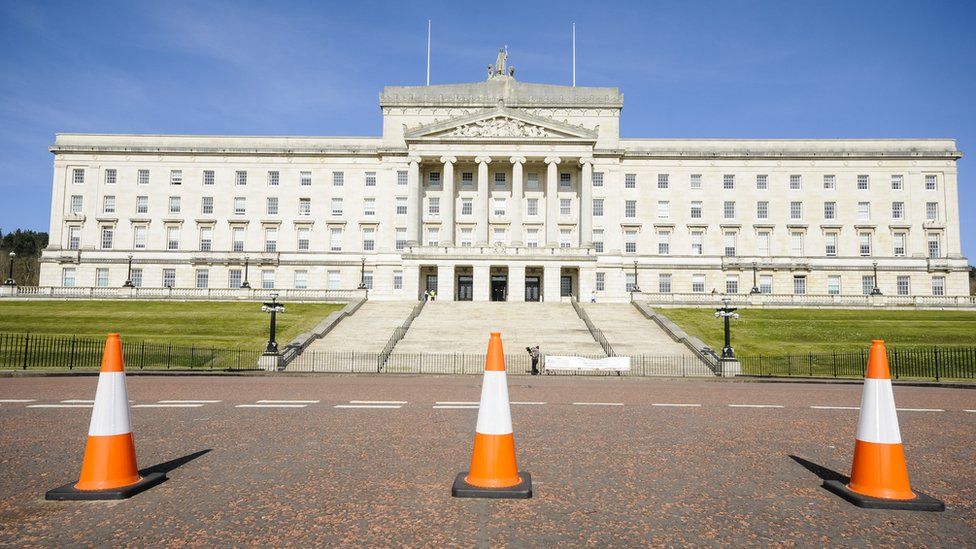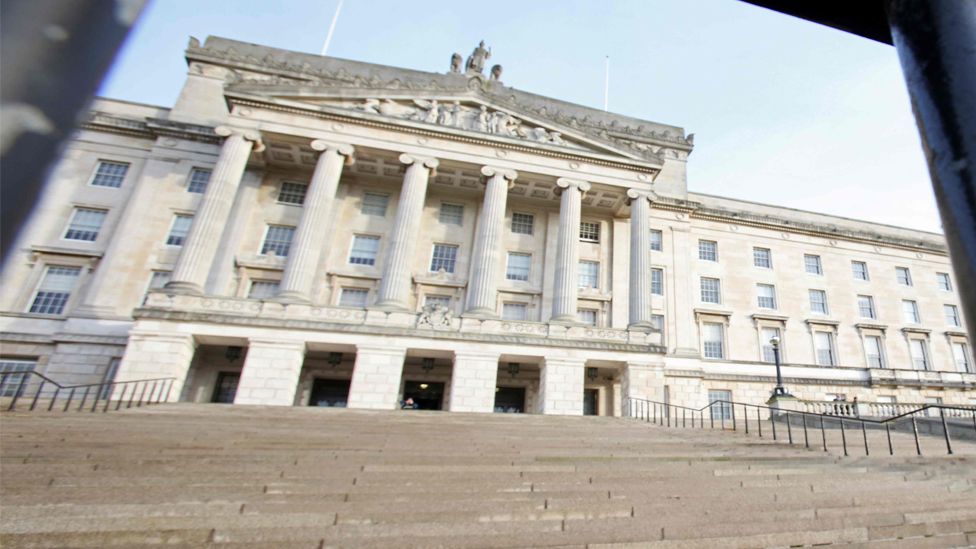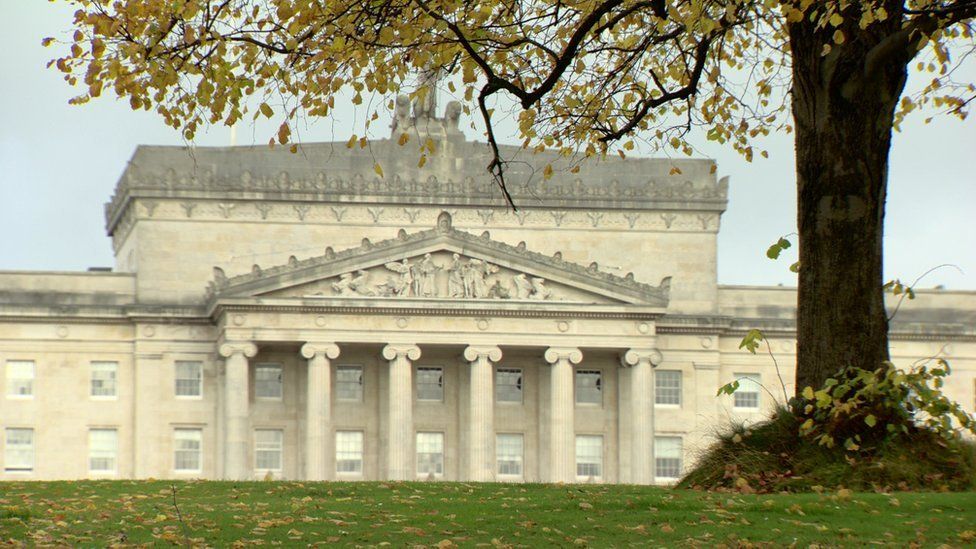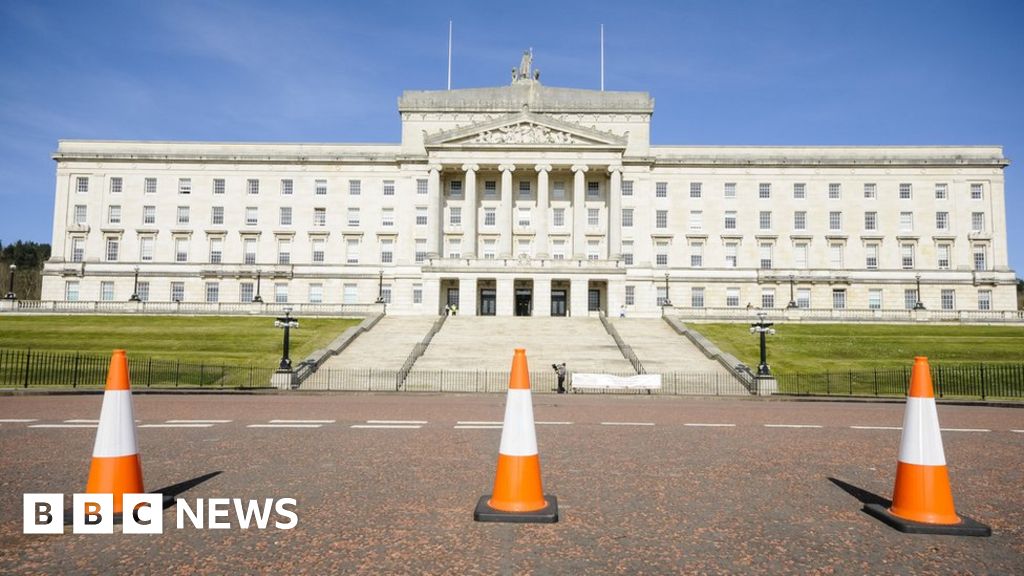 Getty/Stephen Barnes
Getty/Stephen BarnesPoliticians are back in Stormont in a bid to elect a new Speaker for the fifth time since May’s election.
It follows a Sinn Féin recall request – a move backed by the Alliance Party and the Social Democratic and Labour Party.
The motion calls on the Democratic Unionist Party (DUP) to end its boycott of power-sharing to help deal with the cost-of-living crisis.
On Tuesday, a law giving the Northern Ireland secretary the power to cut Stormont salaries came into effect.
Chris Heaton-Harris confirmed he would implement a 27% cut but it is still not clear when this will happen.
The new law also means the Northern Ireland secretary is now under a new legal obligation to call a fresh Stormont election, which would take place no later than 13 April if the institutions are not restored by mid-January.
The legislation also clarifies the limited decision-making powers provided to civil servants while there is no Northern Ireland Executive in operation.
- WATCH LIVE: Stormont Assembly recalled
- Who is minding the shop at Stormont?
- NI secretary is granted power to cut Stormont pay
- A simple guide to the Northern Ireland Protocol
The last failed recall was in October, ahead of a deadline to restore power-sharing.
The election in May saw Sinn Féin win the largest number of seats – but on each occasion, the DUP has refused to support a new Speaker.
No other business can take place until a Speaker is elected.
Speaking after proceedings at the assembly got under way, Sinn Féin deputy leader Michelle O’Neill accused the DUP of abandoning the public “to a Tory government intent on inflicting cuts and austerity in society”.
“We do not have months to ponder, but rather weeks to take action and create stability and certainty for society, businesses and politics,” she said.
The DUP’s Gordon Lyons said the recall of the assembly was “nothing more than a farce” and the DUP would not be supporting nominations for Speaker.
“We believe that devolution needs a firm foundation to succeed and that foundation will never be in place as long as the issues around the protocol are unresolved,” he said.
The Alliance Party’s Kellie Armstrong said she did not expect the DUP to end its boycott.
“I expect every household in Northern Ireland to face a cold winter without the same level of help that is being provided to others across the UK,” she said.

Analysis: Political climate hasn’t changed
By Darran Marshall, BBC News NI political correspondent
We have been here before, in May (twice), in August, and in October. So what’s changed?
The clocks have gone back. The mornings are darker. It’s colder outside. And there aren’t as many leaves on the trees.
What hasn’t changed is the political climate. There has been no thawing of political positions, we’ll hear the exact same arguments today as we have heard for months.
So what will happen today?
Assembly members will gather at noon in the chamber. They’ll attempt to and fail to elect a Speaker.
For a couple of hours, there’ll be political finger-pointing over the need for a functioning administration to deal with the cost of living crisis.
And by about 15:00 the chamber will be empty. Don’t expect an executive back by the end of the day (or year).
What else might happen today?
We’ll be keeping an eye out to see if the Northern Ireland secretary tells us (and the MLAs) when he intends to cut their pay. He’s talked about it for almost a month.
As of last night, he has the legal authority to do so – but we still don’t know when it will be implemented.

Northern Ireland has been without a functioning government since February as the DUP has refused to return to power-sharing in protest over the protocol.
Unionist politicians argue the post-Brexit trading arrangement undermines Northern Ireland’s position in the UK.
It keeps Northern Ireland aligned with some EU trade rules to ensure goods can move freely across the Irish land border.
Negotiations between the UK government and the EU to resolve differences over the protocol are continuing.
Meanwhile, a new law giving the Irish language official status, also received Royal Assent on Tuesday.
The culture, language and identity bill will allow the use of Irish in courts and see the appointment of Irish and Ulster Scots/Ulster British commissioners.
Irish language campaign group An Dream Dearg described the legislation’s passage into law as an “historic day”.
-
Stormont Assembly recalled for fifth time
-
1 hour ago

-
-
Who is minding the shop at Stormont?
-
4 days ago

-
